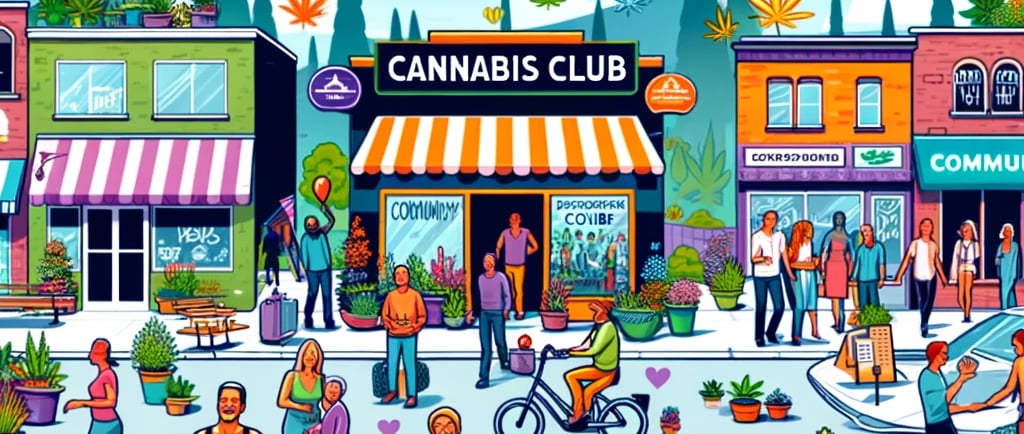Impact of Cannabis Clubs on Local Economies
Cannabis clubs, especially in regions where their existence is legalized or tolerated, have a multifaceted impact on local economies. Beyond their core function of providing safe access to cannabis for their members, these clubs contribute to economic growth, job creation, and even tourism. This article examines how cannabis clubs are influencing local economies and the potential for further economic integration.
CANNABIS CLUBS
3/31/20242 min read


Economic Contributions of Cannabis Clubs
Cannabis clubs contribute to local economies in several tangible ways:
Job Creation: The operation of cannabis clubs generates employment opportunities, from cultivation and administrative roles to retail positions within the clubs.
Increased Tax Revenue: Where regulated, cannabis clubs can contribute significantly to local tax revenues, which can be allocated to public services, education, and community projects.
Support for Local Businesses: Cannabis clubs often source products and services from local businesses, contributing to the local economy beyond the immediate cannabis sector.
Cannabis Clubs as Tourist Attractions
In locales where cannabis clubs are a novelty, they can attract tourists, contributing to the local tourism industry. This attraction isn't limited to the clubs themselves but can extend to local restaurants, hotels, and cultural sites, as visitors explore the broader area.
Tourism Spillover Effect: The presence of cannabis clubs can enhance the overall appeal of a destination, leading to increased spending in the local economy.
Educational Tours: Some cannabis clubs offer educational tours and workshops, further attracting individuals interested in learning about cannabis cultivation and its uses.
Challenges and Regulatory Considerations
The economic impact of cannabis clubs is not without challenges. Regulatory hurdles can limit the ability of clubs to operate openly or expand their services, potentially stifling economic benefits. Additionally, there's the need to balance economic growth with public health and safety concerns, ensuring that the expansion of cannabis clubs contributes positively to the community.
Case Studies: Local Economic Impact
Examining the impact of cannabis clubs in specific regions can provide insight into their economic contributions. For instance, in Barcelona, Spain, cannabis clubs have become embedded in the local cultural and economic landscape, supporting not only direct jobs within the clubs but also ancillary services that cater to the cannabis community.
The Future of Cannabis Clubs in Local Economies
Looking forward, the role of cannabis clubs in local economies could expand with increasing legalization and societal acceptance of cannabis. Potential areas for growth include the development of cannabis-related products and services, increased tourism, and innovation in cannabis cultivation and consumption methods.
Check top 10 cannabis clubs in Valencia
Conclusion
Cannabis clubs have a significant, though often under recognized, impact on local economies. Through job creation, tax revenue, and tourism, these clubs contribute to economic growth and diversification. As legal and societal landscapes continue to evolve, the potential for cannabis clubs to further influence local economies remains vast, offering opportunities for sustainable development and community engagement.
